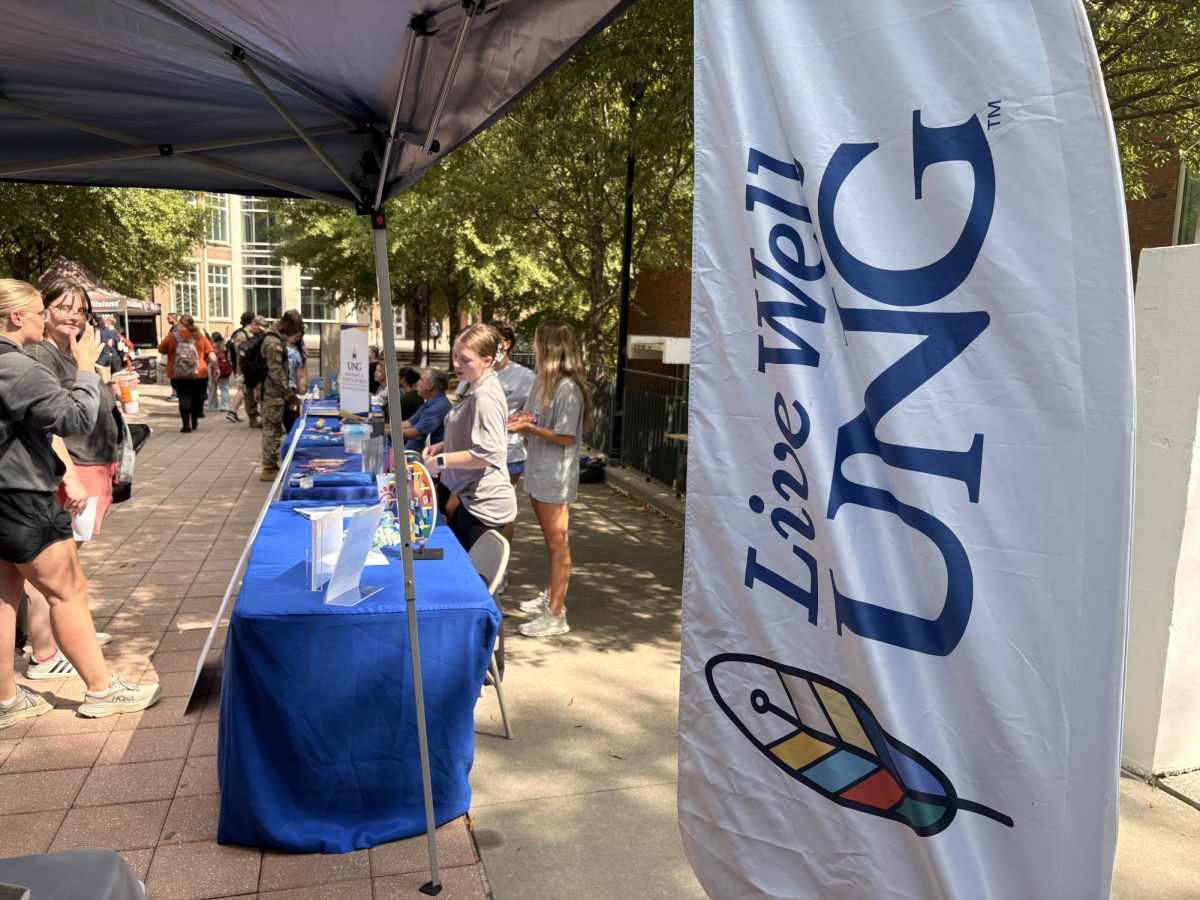Student loan debt as of 2021 is at a staggering total of $1.71 trillion, and it’s showing no signs of slowing down.
The recent student loan statistics shared by Educationdata.org provides a bleak image. The numbers show that student loan debt is shared by 43.2 million student borrowers, with an average of $39,351 each. The student loan debt total is increasing each year, growing nearly 6 times faster than the nation’s economy. The presence of COVID-19 seems to have escalated the crisis even further, with the total student loan debt increasing by 8.28% and the average student loan debt increasing by 4.5%.
The Gainesville Times writes that based off of the most recent available statistics, the average amount of federal, state, institutional and private loans borrowed by a University of North Georgia graduating student comes out to be approximately $19,000.
The numbers may tell a frightening story, but does this mean that college is a life sentence of inescapable debt? Erick Jones, coordinator for the Student Money Management Center at the University of North Georgia, believes that this is not necessarily the case. “The return on investment for a college degree if you do have to borrow some money is tremendous. Federal Revere studies show that you’re going to make a million dollars more in your lifetime with a bachelor’s degree than with just a high school diploma.”
Despite this, current data provided by the National Student Clearinghouse shows that the general population’s attitude towards investing in college is shifting. The NSC reports that “overall, college enrollment is running 2.9% below last spring’s level. Community colleges remain the worst-hit sector by COVID-19, down 9.5% from last spring. Public four-year undergraduate enrollment is currently falling more precipitously (-3.3% this spring, -1.1% last spring, and -1.9% last fall).”
The general anxieties surrounding college are undeniable. Savannah Nichols, a junior education major at UNG, seriously considered dropping out last semester. “It was a hard decision I was contemplating. As someone who doesn’t receive any financial aid besides loans, I was becoming very overwhelmed. My mom is 43 and is still paying on her student loans from when she was 21, this really scares me.”
However, Jones proposes a more hopeful view. “Many students I talk to are hesitant about taking on any debt, but as long as you are careful with your borrowing and deliberate with how much you borrow, you can certainly graduate with low debt, especially at UNG.”
Jones’s main advice on smart borrowing is knowing the amount you actually need. “The most important thing students need to do before borrowing money is understanding how much they need to borrow. You don’t have to borrow everything that’s offered, take a look at your finances, talk with the people involved in your financial life, and really figure out what is necessary to borrow.”
When it comes to managing the money you have borrowed, as well as just being a financially conscious person, Jones encourages students to set realistic expectations, plan ahead, and give yourself options.
Jones emphasizes that being financially conscious does not mean you have to cut out everything fun in your life, it just means you have to be realistic about what you can and can’t live without, and budget around that. Jones encourages students to “go back and review your spending, if you are wanting to change the results of your financial responsibilities, you have to go back and see if you need to change your behaviors.”
Jones also encourages students to be deliberate in planning ahead. Not everything has to be perfectly mapped out right out of college, but being deliberate about things like retirement, 401Ks, IRAs, etc. will be beneficial in the long run. “By investing and giving yourself an opportunity in starting those financial journeys, you give yourself a lot more options.”
For comprehensive and up-to-date news on the topic of student debt, consider visiting the Student Debt Crisis organization’s website. If you are struggling with student debt or simply seeking general financial advice, you can schedule a free one-on-one consultation with a Student Money Management Center professional here.



























